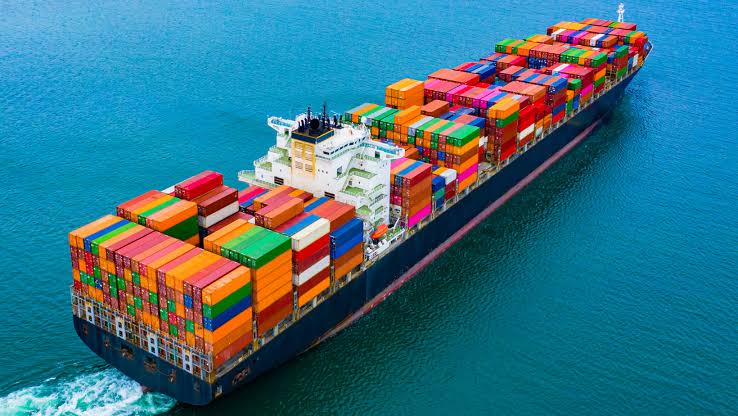Importing products into Nigeria can be a profitable business opportunity, but it requires following the right legal procedures. The Nigerian import process is regulated to ensure goods meet quality, safety, and tax requirements.
Without the correct documentation and compliance, your goods could be delayed, seized, or attract heavy penalties.
In this guide, we will walk you through the entire process, from selecting products to clearing them at the port, so you can import legally, avoid costly mistakes, and run a successful trade business in Nigeria.
Step 1: Research the Products You Want to Import
Before importing, identify products with strong demand in Nigeria, such as electronics, clothing, machinery, or beauty products. Consider factors like pricing, quality, consumer trends, and competition.
You also need to check if the goods are allowed under Nigerian import laws, as some products are restricted or prohibited by the Nigeria Customs Service (NCS).
Understanding market demand will help you avoid importing products that are hard to sell or that might be banned. It is advisable to study price differences between Nigeria and your source country to ensure profitability.
Step 2: Verify Import Requirements and Regulations
Different products have different import requirements. For instance, food items may need permits from NAFDAC, while electronics may require Standards Organisation of Nigeria (SON) certification.
You should review the Nigeria Customs Service tariff list and import guidelines to understand the exact duties, levies, and paperwork required. This step helps you avoid customs problems later in the process.
Step 3: Register Your Business
To import legally, you must have a registered business in Nigeria with the Corporate Affairs Commission (CAC). This registration gives your company a legal identity, which is essential for obtaining necessary import documents and opening a corporate bank account.
Having a registered business also improves your credibility with suppliers, banks, and government agencies, making it easier to secure deals and clear your goods at customs.
Step 4: Obtain an Importer’s Code
Every importer in Nigeria must have an Importer’s Code issued by the Nigeria Customs Service. This code is linked to your Tax Identification Number (TIN) and is required for all formal import transactions.
Applying for an Importer’s Code ensures your shipments are recognised in the customs system and processed without unnecessary delays.
Step 5: Open a Domiciliary Bank Account
Since most international suppliers deal in foreign currencies like US dollars, euros, or yuan, you’ll need a domiciliary account with a Nigerian commercial bank.
This account allows you to send payments abroad and receive funds from international partners. Opening this account early will speed up your transactions once you start placing orders.
Step 6: Source and Negotiate with Reliable Suppliers
Choose trustworthy suppliers from your target country. You can find them through trade fairs, online marketplaces like Alibaba, or industry networks. Always verify supplier credibility through reviews, certifications, and references.
Negotiating favourable prices and shipping terms will improve your profit margins. Be clear on product specifications, payment methods, and delivery timelines before confirming an order.
Step 7: Arrange Shipping and Logistics
Decide whether you’ll import by air freight (faster but more expensive) or sea freight (slower but cheaper for bulk goods). Work with a licensed freight forwarder who understands Nigerian import laws and documentation requirements.
The freight forwarder will help you prepare essential documents such as the Bill of Lading, Packing List, and Commercial Invoice. These will be required by customs before your goods are released.
Step 8: Process Form M and Pay Duties
Before goods are shipped, you must complete Form M through your bank and get it approved by the Nigeria Customs Service. Form M is an official declaration of your import details and ensures your goods meet Nigerian trade regulations.
Once your shipment arrives, you will need to pay applicable customs duties, levies, and VAT based on the product category and value.
Step 9: Clear Your Goods at the Port
At the port of entry, customs officers will inspect your shipment to ensure it matches the declared documents. If everything is in order, your goods will be released for delivery to your warehouse or distribution centre.
Working with an experienced clearing agent can make this process smoother and help you avoid costly delays.
Step 10: Distribute and Sell Your Products
Once cleared, you can begin marketing and selling your products through wholesalers, retailers, or online platforms. Building strong distribution channels will help you recover your investment quickly and grow your import business.
Conclusion
Importing products into Nigeria legally requires patience, planning, and attention to detail. From registering your business to clearing goods at the port, each step must be done correctly to avoid fines or product seizure.
By following this step-by-step process, you can operate within the law, protect your investment, and take advantage of Nigeria’s large consumer market.
FAQs on Importing Products into Nigeria Legally
What documents do I need when importing products into Nigeria?
You typically need Form M, a Bill of Lading or Airway Bill, Commercial Invoice, Packing List, Import Duty Payment Receipt, and any product-specific permits such as NAFDAC or SONCAP certificates.
Do I need a business registration to import into Nigeria?
Yes. Only registered businesses with the Corporate Affairs Commission (CAC) and a Tax Identification Number (TIN) can legally import goods into Nigeria.
How long does it take to clear goods at Nigerian ports?
The clearance process can take anywhere from a few days to several weeks, depending on documentation accuracy, product type, and port congestion. Using an experienced clearing agent can speed up the process.
What is Form M and why is it important?
Form M is an import declaration form approved by the Nigeria Customs Service before shipment. It ensures imported goods meet Nigerian regulations and is required for customs clearance.




